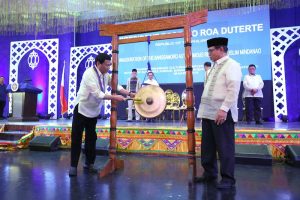
COTABATO CITY (MindaNews) — Thirty months after the Bangsamoro Autonomous Region in Muslim Mindanao (BARMM) was inaugurated — 18 months of these under a pandemic — direct foreign investments are still coming in trickles in the region that has been enjoying relative peace after decades of bloody armed conflicts.
Local investors, however, are boosting the economy of the fledgling region with 6.5 billion pesos worth of investments: P4.1 billion in 2019, P14 million in 2020 and P2.4 billion as of September 20, 2021, generating, according to their applications for registration, jobs for at least 6,700 workers.
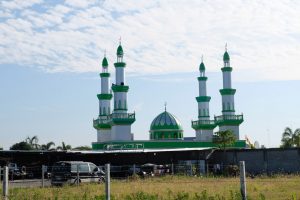
The Bangsamoro region is a product of the Comprehensive Agreement on the Bangsamoro, the peace agreement signed by the Philippine government and the Moro Islamic Liberation Front (MILF) in 2014 after 17 years of negotiations, its enabling law, Republic Act 11054 ratified in a plebiscite in January 2019.
When the BARMM was inaugurated on March 29, 2019, President Rodrigo Duterte told members of the Bangsamoro Transition Authority (BTA), the body tasked to govern the BARMM until June 30, 2022: “the power to chart the course of your region’s future is now in your hands. I trust that you will wield this power with utmost care, the future of succeeding generations of Filipinos, especially the Moro of Mindanao, depends on it.”
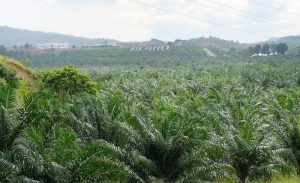
The two houses of Congress have passed bills extending the transition period in the BARMM from June 30, 2022 to June 30, 2025 by resetting the first election of the 80-member Bangsamoro Parliament from May 2022 to May 2025. The Bicameral Conference Committee approved earlier this week a reconciled version which the House has ratified. The Senate has yet to ratify it before it is sent to the President for signing into law.
The extension of the transition period until 2025 gives the BARMM enough time to pass the priority bills and other aspects of the political track of the peace agreement and complete the decommissioning of the MILF’s 40,000 combatants and weapons and other aspects of the normalization track.
But how the region will entice investors given the economic problems brought about by COVID-19, is yet another challenge.
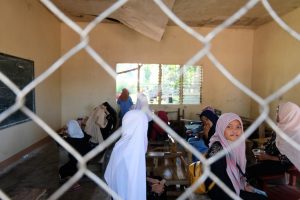
Off to a good start
“Mahina pa rin ang BARMM in terms of uptick sa investment (BARMM is still slow in term of investment uptick), lawyer Ishak Mastura, chair of the Regional Board of Investments (RBOI).
Mastura noted that in 2020, the lone investor accredited by the RBOI-BARMM was the Community Wireless and Power Corporation, with P14 million investment for its internet service project in Lanao del Sur and Maguindanao provinces.
The region was actually off to a good start in 2019, Year One of the BARMM.
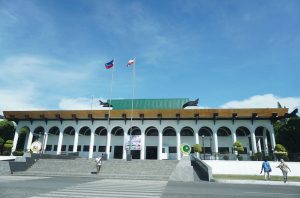
The RBOI-BARMM targeted 2.3 billion pesos worth of investments then but by yearend, it recorded 4.12 billion: P1.4 billion from JMI Sand and Gravel Truck Services, P1.8 billion from Lamitan Agri-Business Corp., P515 million from Maguindanao Corn Development DSA–I Corp., P306 million from Wao Development Corp and P100 million from Hong Kong Feng Sheng Heritage Philippines, Inc. In their applications, these firms projected a total of 2,724 direct and indirect employment.
Wao Development Corp., a pineapple packing plant, is owned by multinational firm Dole Philippines, Inc. while the rest are Filipino-owned companies.
Filipino companies have always been boosting the investment climate in the region, said Mastura, who also served as the area’s investment ambassador in the Autonomous Region in Muslim Mindanao (ARMM). The ARMM, which recorded 1.3 billion pesos in investments in 2018, was abolished upon the ratification of the Organic Law for the BARMM in 2019.
‘Open for business’
“The BARMM has shown the benefits of peace in terms of more willing investors in the region,” Mastura said in his December 4, 2019 report.
Mastura said investors register with the board to avail of fiscal incentives such as income tax holidays, tax credits and exemptions from taxes and duties on imported spare parts, and wharfage dues and export tax, among others.
According to him, BARMM is privileged to be the only region in the country with an own Regional Board of Investments that can dispense fiscal incentives to investors, provided that the amount of investment is below one billion pesos.
The 2020 Investment Priorities Plan approved by the national government, it identified three registrable investment activities that are unique to BARMM. These are on the halal industry, Islamic banking and BIMP-EAGA-related investment enterprises.
Bullish on the investment prospects in the BARMM, Bangsamoro Interim Chief Minister Ahod Balawag Ebrahim encouraged investors, particularly those from rich Islamic countries, to pour in capital to the new Bangsamoro region.
“BARMM is open for business. We want investors to come and create jobs and income to help us attain our goal of sustainable development and inclusive growth,” a very optimistic Ebrahim said.
The Bangsamoro that thrives in business and investments, he explained, is “a Bangsamoro that can truly move forward towards lasting development in the region.”
The coronavirus disease 2019 (COVID-19), however, reared its ugly head in 2020, bringing economies and businesses down on their knees.
From 14 million in 2020 to 2.39 billion in 2021
BARMM is a resource-rich region comprising the provinces of Lanao del Sur, Maguindanao, the island provinces of Basilan, Sulu, Tawi-tawi, and the cities of Marawi, Lamitan and Cotabato, and 63 villages in North Cotabato that voted for inclusion in the region. The Philippine Statistics Authority’s (PSA) May 2020 census listed its population at 4.4 million, excluding Cotabato City and the 63 villages in North Cotabato which were formally made part of the BARMM in December 2020. Including Cotabato and the 63 villages, the BARMM’s total population is 4.9 million.
PSA records also show that the BARMM is one of the poorest regions in the country, with a poverty incidence of 61.8 percent as of 2018.
Year 2 of the BARMM was a bad year for investments because of the lockdowns brought about by the COVID-19 pandemic, with the lone investment of only 14 million pesos.
The BARMM economy started picking up in 2021 with three firms having registered a total of 2.39 billion pesos as of September 20: Al-Muzafar Agriventures, Inc. (AMAVI), with P990 million for banana production; ES Maulana Global Ventures Company, Incorporated (EMGVCI), with P998 million for natural gas and oil deposits in Ligawasan Marsh and the Sulu Sea; and, the Eight Z’s Properties Building Rentals, with P398 million for tourism-related ventures in Cotabato City. Their applications indicate opportunities for at least 4,000 workers.
The defunct ARMM generated investments worth P23.23 billion from 2012 until 2018, creating 16,809 jobs, according to RBOI data.
Stability of governance, sustainability of policies
Mastura noted that stability of governance and sustainability of policies are factors that big-ticket investors, including foreigners, are taking into consideration when investing in the region.
A rapid midterm review of the Bangsamoro transition period was conducted last year by the Mindanao People’s Caucus, which recommended an extension to allow the BTA and the the national government “sufficient time to fully accomplish their priority tasks and duties especially those that need to be jointly implemented.”
The BTA is tasked to pass five priority legislations – Administrative, Revenue, Electoral, Local Government and Education codes – but has passed only the Administrative and Education codes – and the Civil Service Code.
The interim government has also started organizing the business sector to help bring in more investments to create more jobs for its people.
Last Monday, September 20, the Ministry of Trade, Investments and Tourism (MTIT) headed by Abu Amri Taddik convened via Zoom business leaders from BARMM’s five provinces and three cities to organize a regional-level business council.
Bangsamoro Chief Minister Ebrahim, popularly known as Al Haj Murad Ebrahim, his nom de guerre in the MILF, is confident of the Bangsamoro region’s economic outlook.
“Bangsamoro economy for all”
In a video message, Ebrahim stressed the regional business council will play a vital role in representing diverse businesses in the fledgling Bangsamoro region.
“You have shown belief that there are many reasons to be confident about BARMM’s economic future, not least because of the entrepreneurs’ vision and shared dreams of the Bangsamoro’s business sector and the government of the day,” he told the participants.
“We look forward (to) having limitless initiatives together in building the BARMM in the midst of the COVID-19 pandemic and in working hand in hand to create more jobs and build a thriving Bangsamoro economy for all,” Ebrahim said.
On September 23, Ebrahim in his address to the Parliament, said the RBOI has been working “day in and day out to bring in new investors and provide more opportunities to the everyday Bangsamoro.”
Late in 2019, Ebrahim traveled with his team to Saudi Arabi and Turkey for investment missions and to improve ties with the two Islamic countries. He also invited investors from neighboring Malaysia and Indonesia to put up businesses in the Bangsamoro region. Malaysia facilitated the peace negotiations between the Philippine government and the MILF that led to the signing of the CAB in 2014 while Indonesia facilitated the peace negotiations between the Philippine government and the Moro National Liberation Front that led to the signing of the Final Peace Agreement in 1996. The MILF broke away from the MNLF in the late 1970s after the failed implementation of the 1976 Tripoli Agreement.
On the second anniversary of the Bangsamoro Government this year, Ebrahim stressed that the significant improvements in peace and security in the Bangsamoro have boosted the confidence of investors and enhanced other economic drivers in the region.
From BARMM to BIMP-EAGA
Rosslaini Alonto, MTIT director general, stressed the important role of the business sector in helping develop the Bangsamoro region
The BARMM government is undertaking efforts to reinvigorate trade and cultural ties with neighboring predominantly Muslim countries like Brunei, Malaysia and Indonesia, she said.
“We are hoping a balance of trade where we can send our products to these countries and vice versa,” she said.
BARMM is part of the BIMP-EAGA (Brunei-Indonesia-Malaysia-Philippines East ASEAN Growth Area), a sub-regional grouping launched in1994 to boost trade, investments and tourism. The Philippines is represented in the BIMP-EAGA by BARMM and the rest of Mindanao, and Palawan while Malaysia and Indonesia are represented by the eastern parts of their countries closest to Mindanao and Palawan.
Even during precolonial times, trade and cultural ties already flourished between the Philippines’ Sulu and Tawi-Tawi and eastern Malaysia’s State of Sabah because of their proximity.
It is important, Alonto said, to organize a regional business council to represent the BARMM at the BIMP-EAGA Business Council (BEBC).
The BEBC represents the private sector in the BIMP-EAGA and enjoys a “fifth country” status at Senior Officials Meeting or high-level discussions.
Alonto noted that the global multi-billion dollar halal industry can be a lucrative market for the Bangsamoro region.
During the 13th BIMP-EAGA Summit at the 34th ASEAN Summit in Bangkok, Thailand in 2019, three months after the inauguration of the BARMM government, Duterte sought the institutionalization of the barter system, particularly with neighboring Malaysia.
“The institutionalization of the barter trade is an investment for peace and for inclusive, equitable, sustainable development, especially in the newly established Bangsamoro Autonomous Region in Muslim Mindanao,” Duterte said, adding it will “help address endemic poverty and avoid triggers of instability and insecurity in these porous areas of the Bangsamoro region.”
To date, the Bangsamoro region, through the MTIT, has been helping strengthen the capacity of the provincial business chambers with the help of the Philippine Chamber of Commerce and Industry for the ultimate goal of forming the regional business council, for the region to be represented at the BEBC.
Datu Haron Bandila, former chair of the defunct ARMM Business Council (ABC), welcomed the organization of a regional business council in the Bangsamoro region amid the moves to extend the transition period for another three years.
“Let us give these initiatives a chance. For all we know, it may lead to better times,” he told MindaNews.
Bandila, who served as ABC chair for at least 10 years, said the transition period needs an extension to give the Bangsamoro interim government the chance to deliver, as the COVID-19 pandemic disrupted its performance. (Bong S. Sarmiento / MindaNews)
